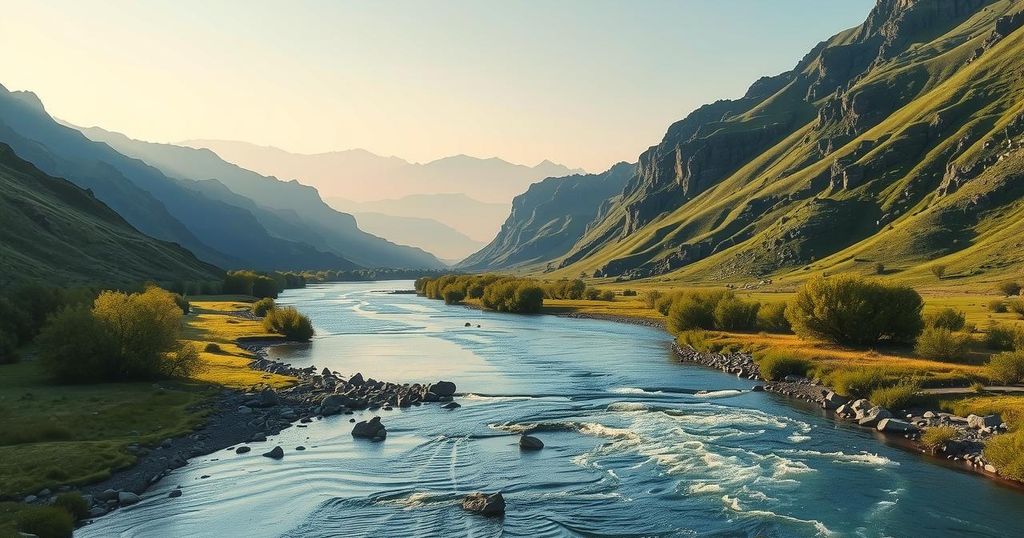Escalation of Conflict in the Democratic Republic of Congo: Key Developments and Implications

The M23 rebels have captured Goma, escalating conflict in the Democratic Republic of Congo and resulting in over 400,000 civilian displacements and 17 deaths among peacekeepers. Diplomatic ties with Rwanda have been severed as accusations of support for M23 complicate regional tensions. The UN and concerned nations are urging for a cessation of hostilities and a return to peace negotiations.
The conflict in the eastern Democratic Republic of Congo (DRC) has intensified as M23 rebel forces captured Goma, the provincial capital of North Kivu. This escalation has led to severe humanitarian crises, with over 400,000 civilians displaced and 17 peacekeepers and soldiers killed. Diplomatic relations between the DRC and Rwanda have deteriorated, with accusations of Rwandan support for M23 complicating the situation further.
As fighting continues, locals seek refuge in neighboring countries, including Rwanda, heightening regional tensions. Protests erupted in Kinshasa against perceived foreign complicity in the conflict, targeting various embassies. The Congolese military has responded with counter-offensives, attempting to regain lost territories but facing the ongoing threat posed by M23 rebels.
The M23 group, emerging from a previous peace deal with the Congolese government in 2009, has renewed its aggressive advances since 2021, citing governmental failure to uphold the agreement as justification for its resurgence. Recent hostilities have led to significant international concern, with calls for peace from the UN and regional leaders, amid ongoing M23 claims of cooperation from Rwandan forces.
The cycle of violence in eastern DRC traces back nearly three decades, fueled by competition for lucrative mineral resources. Various armed groups vie for control, displacing millions and perpetuating insecurity, particularly in North Kivu and Ituri. The M23 has previously captured Goma in 2012 but faced setbacks, leading to a peace agreement until its reemergence, with accusations of Rwandan involvement growing.
Amidst this turmoil, the UN has relocated non-essential staff, highlighting the deteriorating security situation. Rebel aggression shows no signs of abating, as M23 takes significant territories and re-establishes influence in eastern DRC, resulting in grave humanitarian consequences and international appeals for a sustainable resolution to the conflict.
The Democratic Republic of Congo has faced persistent unrest in its eastern regions for decades, largely due to over 100 armed groups contesting control over resource-rich territories. The M23 group has its roots in a prior peace agreement signed in 2009, leading to the integration of dissident fighters into the national army. However, grievances regarding the government’s failure to honor this agreement resulted in the groups’ recent resurgence, exacerbating tensions between Congo and its neighbor, Rwanda. The ongoing violence has displaced millions and sparked international concern regarding regional stability and humanitarian crises within the DRC.
The escalating conflict in the DRC necessitates immediate attention as rebel forces intensify violence, resulting in a humanitarian disaster marked by mass displacement and casualties. Amid rising tensions and international scrutiny, a resolution is imperative to restore stability and address the underlying causes of the conflict. The situation underscores the need for cooperative regional initiatives to break the cycle of violence and promote lasting peace in the DRC.
Original Source: www.aa.com.tr






